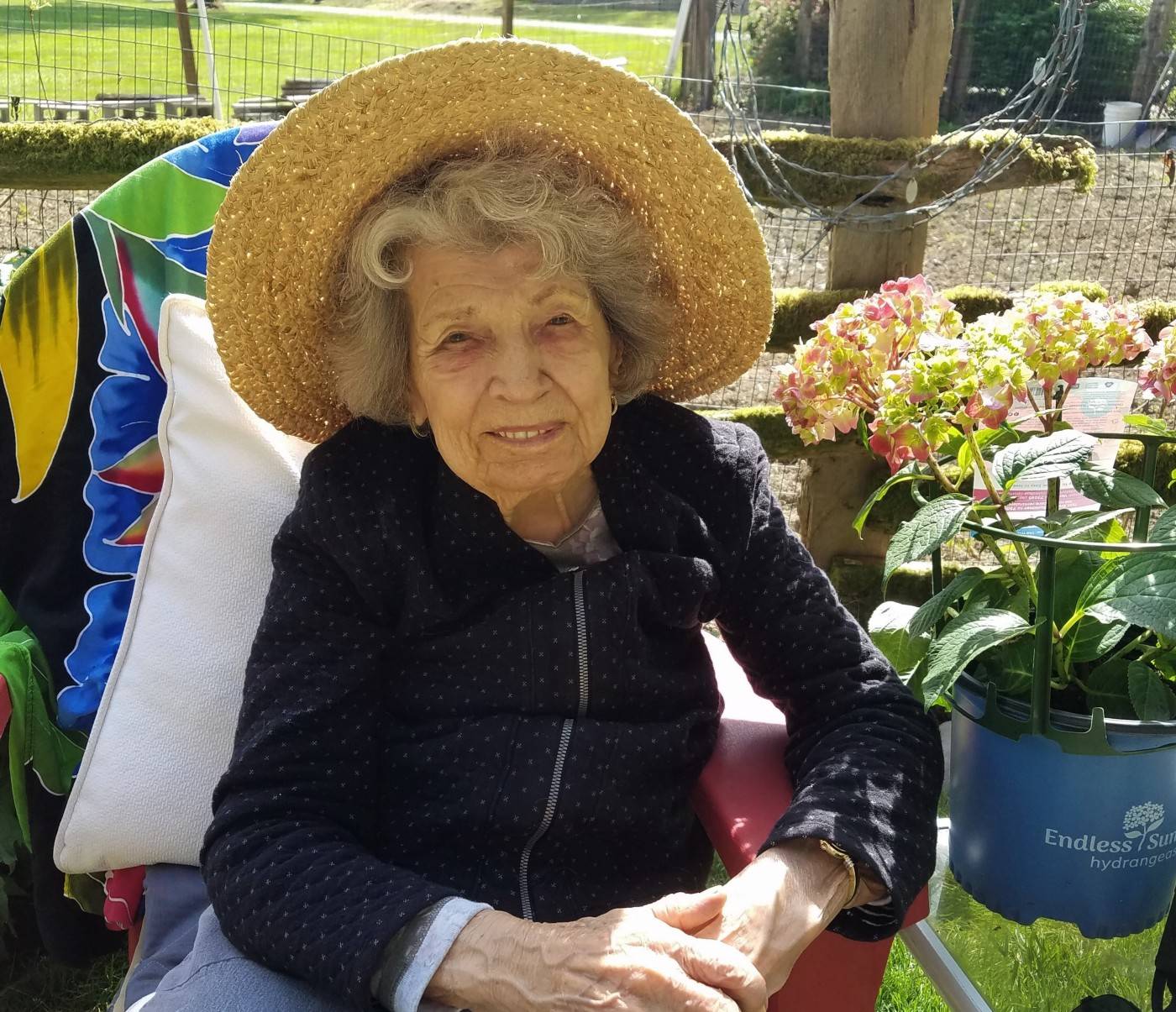Submitted by Washington State Department of Health
COVID-19 is not Berdelle Christiansen’s first pandemic. When she was five years old, she and her mom and dad, her 11-year-old sister, her 9-year-old brother, and her 2-year-old sister were a few of the 500 million people who caught the 1918 flu.
Christiansen and her family lived in a small wooden house in South Dakota. The three girls slept in one bedroom and shared a bed. Her brother slept on a couch in the living room. The family used coal for heat and cooking, lit oil lamps for light, and waded through snowdrifts to get to their outhouse in the winter.
In 1918, the whole family came down with the flu. Christiansen’s mother, Olive, took care of all of them. There were no good treatments for this flu. The little boy got very sick, and for a while, they did not think he would live. But, with rest, prayers, and his mother’s TLC he recovered.
Then Christiansen’s mother came down with the flu herself, and just a couple of days later, she died. A neighbor came by and dressed Christiansen and her youngest sister in their church dresses and put them back to bed. Christiansen watched several men carrying her mother’s body out of the house. Christiansen doesn’t know if her mother had a funeral. If she did, all of the kids were still too sick to go.
Today, Christiansen is 106 years old and lives in Tumwater, Washington, with her daughter.
“My entire life I have missed my mother,” Christiansen said. “I’ve always felt like I have a huge hole in my heart. I still think of her often and wonder about her.”
Christiansen has hazy memories of her mother. She remembers her piano. She remembers watching her knead bread. She remembers riding in a horse-drawn buggy with her. She remembers her auburn hair and how very loving she was.
Life was difficult for Christiansen and her family after her mother died. Her father developed arthritis and struggled to keep up the family farm. Her brother dropped out of grade school to help their father plant and harvest the crops and take care of the farm animals.
“I learned to read, and reading sort of saved my life,” Christiansen said.
Christiansen graduated from high school and two years of teachers college, and then taught school for several years in a one-room school.
“After my mother died, it was like she had never lived,” Christiansen said. “No one, including my father, ever mentioned her name or memories of her again. I remember wondering why no one ever talked about her.”
Christiansen met her husband at a barn dance. She went with him to Seattle, and they started their lives together there. Eventually, they moved to Lake Quinault, where she continued to teach school and Head Start. Christiansen and her husband had five children. She taught her kids about the 1918 flu pandemic.
Christiansen’s daughter Sandy, 70, is the baby of the family. She and her siblings grew up hearing stories about the pandemic and the terrible impact it had on her mother’s life. Sandy feels fortunate that she heard these stories. The 1918 pandemic was devastating for millions of families, but many families just didn’t talk about it.
“I guess it was so terrible everyone wanted to forget about it,” Sandy said.
Sandy said hearing her mother’s stories helped her be more aware of the way colds and flus spread. She remembers when she was working, and one person would come in sick, and then a couple of days later someone else was sick.
“You could just watch it move from person to person down the line of cubes! It was so plain,” she said.
Hardly a day goes by that Christiansen doesn’t think of her mother and the losses from the 1918 flu. Christiansen hopes that we will remember and talk about the people who died of COVID-19.
“I do feel sorry for the families who have lost a loved one, especially if small children are left without a mother or father,” she said.
COVID-19 is familiar territory for people who grew up with the specter of pandemic flu.
“One thing that absolutely astounds me is that people don’t take it seriously,” Sandy said.
Christiansen sees her family now just from a distance.
“We’re just trying to be so, so careful,” Sandy said.
Practice compassion
We all have a story. Listen to stories. Learn from our painful past. What will your COVID-19 story be? We have already lost more than 1,200 people in Washington to COVID-19. Take care of each other by wearing cloth face coverings, staying at least six feet away from others, and washing your hands frequently.
More information
Information changes rapidly. Check the state’s COVID-19 website for up-to-date and reliable info at coronavirus.wa.gov.
Answers to your questions or concerns about COVID-19 in Washington state may be found at www.doh.wa.gov/coronavirus. You can also contact the DOH call center, 6 a.m.-10 p.m., seven days a week at 1–800–525–0127.



